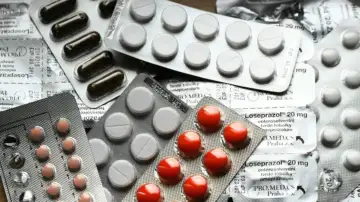What we call kidneys are two bean-shaped organs – each the size of a fist. They aid in producing urine by cleaning excess and waste from the blood.
When facing kidney disease, it means the damaged kidneys cannot effectively filter blood.
Serious kidney problems affect the nephrons, which are the parts of the kidney that remove waste. These issues can be caused by genetics, injuries, or certain medicines. Other risk factors include diabetes, high blood pressure, or a family history of kidney disease. Over time, chronic kidney disease can make things worse. Common kidney problems include kidney stones, urine retention, and dysuria.
 Nephrolithiasis, also known as kidney stones or renal calculi, are hard crystal formed in the kidneys. Small stones often pass out of the body without pain, but larger stones can be very painful and may need surgery. Kidney stones usually form when certain chemicals in the urine become too concentrated. Staying hydrated can help prevent them.
Nephrolithiasis, also known as kidney stones or renal calculi, are hard crystal formed in the kidneys. Small stones often pass out of the body without pain, but larger stones can be very painful and may need surgery. Kidney stones usually form when certain chemicals in the urine become too concentrated. Staying hydrated can help prevent them.
Urinary Retention disorder is the inability to completely empty the bladder and is connected with health issues like prostate difficulties in males or cystocele in women. If unable to urinate, acute urine retention can be fatal too. Chronic cases can be undetected due to usually being asymptomatic.
Dysuria means feeling pain, burning, stinging, or itching when urinating. Most people experience this at some point in their lives. It can be caused by infections or other reasons, and treatment depends on the cause.
 In Comes Lithom
In Comes Lithom
Patanjali has worked on the fundamentals of Ayurveda to offer Divya Lithom. It is useful in treating Renal Alculus, Dysuria, Urine Retention, Burning Micturition, and Renal Problems. The Bhavaprakasha includes the Gokhru drug under the Guduchyadi Varga. It has a sweet taste, cold potency, and Madhura Vipaka. It promotes strength, bladder clearing, and anti-Nephrolithiasis activity. It has anti-inflammatory qualities.
The Kulath under the Dhanya Varga by Bhava Prakasha has a sharp taste, lightness properties, and causes a burning sensation. It has hot potency, calms Kapha and Vata Doshas, and can cure renal stones.
Punarnava, mentioned under Guduchyadi Varga in Bhava Prakasha, has bitter, sweet, and astringent taste. It has lightness and astringent qualities. It has a bitter post-digestive taste and has a hot potency. It calms the Kapha and Vata Doshas, has anti-inflammatory qualities, and pushes the digestive power.
The bitter and astringent tasting Pashanbhed has light and unctuous qualities, cold potency, and bitter post-digestive taste. This drug can calm all three Doshas, treats urinary infections, and can break Kidney Stones.
The pungent and bitter-tasting Methi has a bitter post-digestive taste. It contains hot potency and qualities of lightness and unctuousness. It has the quality to calm Kapha and Vata Dosha. It has anti-inflammatory qualities and cures burning sensations.
The Yava Kshara has a light quality, subtleness, and unctuousness. It cures pain and boosts digestion. Hazrul Yahud Bhasma calms Pitta and Kapha Doshas, cures Urinary Calculi, and other urinary system diseases. Kalmi Shora tastes pungent and alkaline. It contains hot potency with light and penetrating qualities. It boosts digestion and calms Kapha and Vata Doshas.
The Mulaka Kshara from Moolaka Raphenus Satvius has an alkaline taste, is sharp and burning in nature and has hot potency but external coolant. It treats Urinary Calculi. The Sweet Parpati, created from Navasara, Suryakshara, and Sphatika, is widely used to treat Urinary Calculi. It stabilises Pitta and Vata Doshas.
Dealing with kidney issues can be easy with the Ayurvedic power of Divya Lithom by Patanjali.
